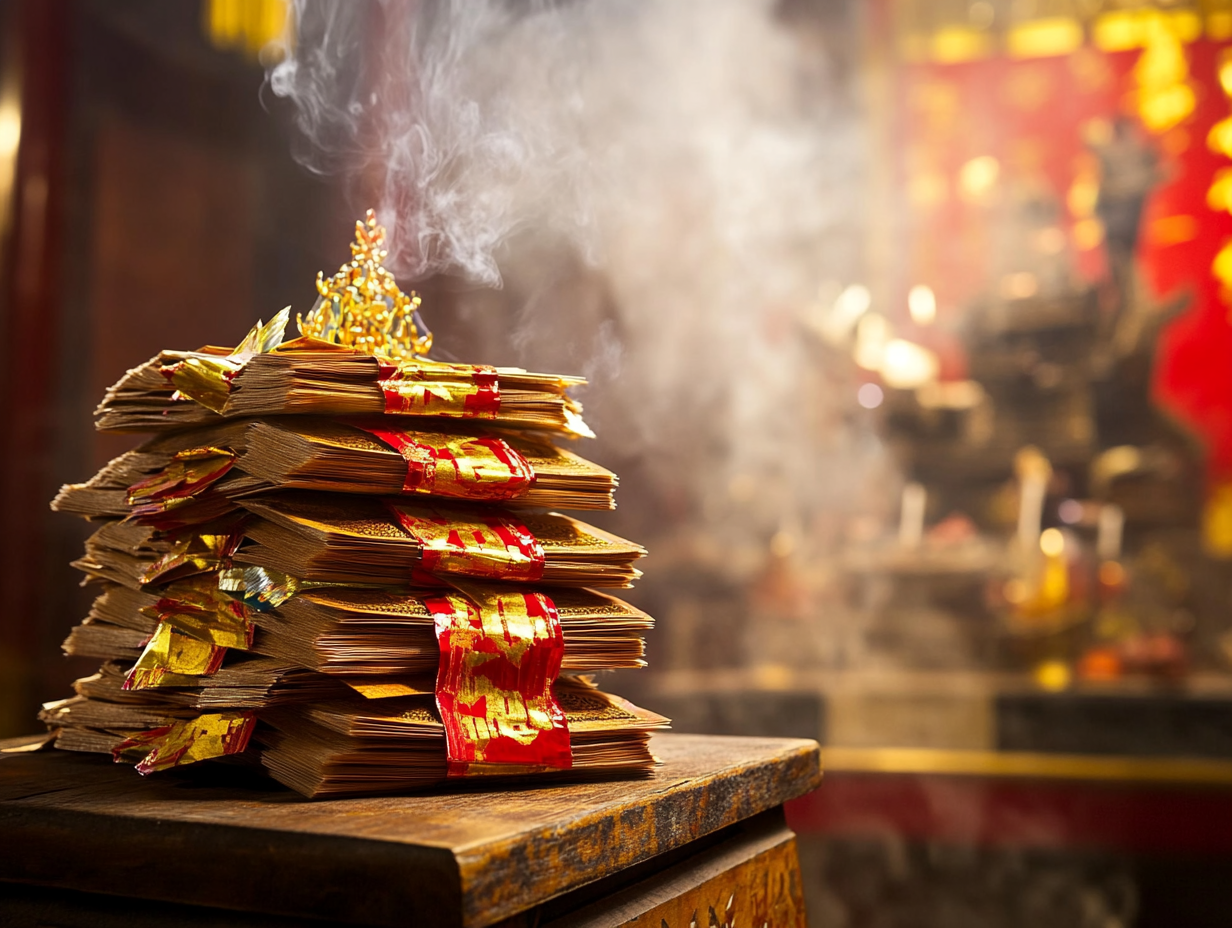Spirit money, also called joss paper or ghost money, plays a key role in many East Asian spiritual traditions. People believe it helps provide wealth and comfort to ancestors and wandering spirits in the afterlife. This article explains the origins, types, rituals, and modern changes surrounding spirit money. The language stays simple, uses the active voice, and keeps sentences short.
What is Spirit Money(Joss Paper)?
Joss Paper refers to special paper items burned during traditional ceremonies. Families believe these offerings reach the spirit world, where they give money and goods to deceased loved ones. People use it during funerals, ancestor worship days, Ghost Month, and temple ceremonies.
History and Origins
Ancient Chinese Beliefs
Ancient Chinese communities believed the afterlife mirrored the human world. The dead needed food, clothing, and money. Families offered real items in early times but switched to paper to avoid waste and cost.
Spread Across Asia
The practice spread to Taiwan, Singapore, Vietnam, Malaysia, and other parts of Asia. Each region developed unique designs and traditions, yet the purpose remained the same: to support spirits in the other world.
Types of Spirit Money
Gold and Silver Paper
Gold paper is typically reserved for gods and deities, while silver paper is used for ancestors. People fold the sheets into shapes before burning them.
Hell Bank Notes
These look like paper money with large denominations. Families burn them to send financial support to their loved ones in the spirit realm.
Paper Goods
Beyond money, people create paper houses, clothes, jewellery, and even paper cars or electronics. Burning these symbolises sending comfort and luxury to ancestors.
Rituals and Practices
Preparing Offerings
Families clean ancestor altars, prepare food, tea, and incense, and set up tables outside their homes. They place spirit money with these offerings to show respect.
Burning Ceremony
They fold the paper and place it in a safe container or metal bin. Once lit, people believe smoke carries the money to spirits. They bow or pray during the burning, asking for blessings and protection.
Community Rituals
Temples organise larger ceremonies where families gather to burn offerings together. These events build a sense of unity and shared respect for the dead.
Symbolism of Joss Paper
Spirit money(Joss Paper) represents more than wealth. It symbolises:
- Love and care: Sending comfort to family members in the afterlife.
- Respect: Honouring ancestors and gods.
- Protection: Asking spirits to bless the living and keep harm away.
- Harmony: Keeping balance between the human and spirit worlds.
Modern Adaptations
Digital Spirit Money
With technology, people now send virtual joss paper through apps and websites. This allows offerings without smoke or fire hazards.
Eco-Friendly Alternatives
Many communities switch to environmentally friendly paper or set limits on burning to reduce pollution.
Personalized Designs
Families order custom-made spirit money with names or messages, making offerings more personal and meaningful.
Common Occasions for Spirit Money
- Funerals: To guide the deceased safely to the afterlife.
- Ancestor worship days: Like Qingming Festival or Ghost Month.
- Temple visits: To honour gods and request blessings.
- Special anniversaries: Marking birthdays or death dates of loved ones.
Joss Paper Around the World
In Singapore and Malaysia, people burn spirit money during large community events. In Taiwan, temples hold grand ceremonies with music and prayers. In Vietnam, families offer paper money during Tết and other ancestral rites. Each place keeps the same goal: caring for spirits beyond this world.
Conclusion
Joss Paper remains a strong tradition in many cultures. It reflects love, respect, and the wish to keep connections with ancestors alive. Whether through burning paper offerings or using digital methods, families continue this practice to honour the past and seek harmony with the unseen world.




